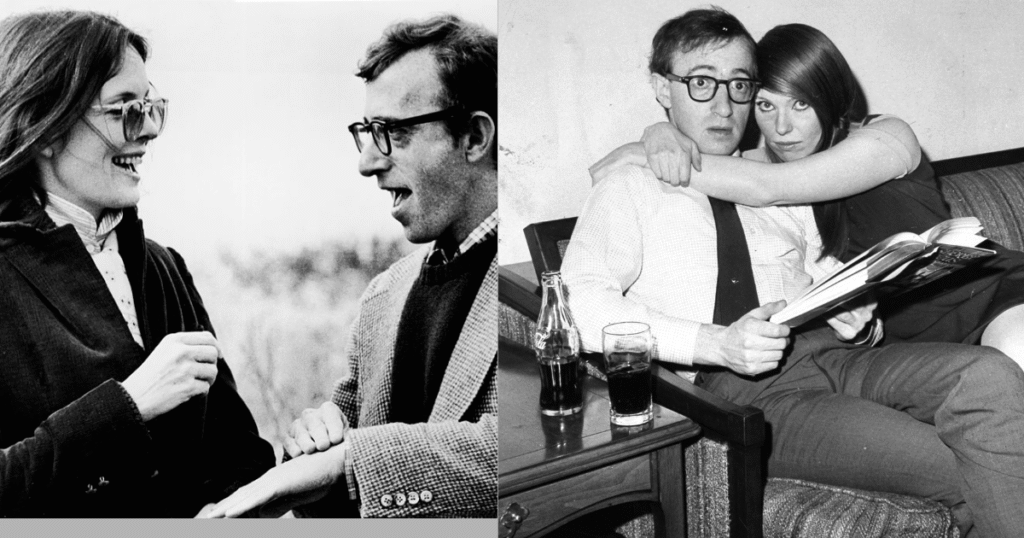Who Is Fayez Tlaib?
Fayez Tlaib is the former husband of U.S. Congresswoman Rashida Tlaib. He’s a Palestinian-American who maintains a deliberately private life away from media attention, despite his connection to one of America’s most prominent progressive politicians.
The name Fayez Tlaib surfaces mainly in connection with Rashida Tlaib’s personal story. While she made history as one of the first Muslim women elected to Congress, Fayez chose a different path—one marked by privacy, family focus, and cultural preservation. Born in Palestine and later settling in Michigan, he represents thousands of immigrant stories that unfold quietly, away from political stages and news cameras.
Quick Facts About Fayez Tlaib
| Detail | Information |
|---|---|
| Full Name | Fayez Tlaib |
| Birthplace | Beit Ur al-Fauqa, Palestine (West Bank) |
| Nationality | American (Palestinian descent) |
| Religion | Islam |
| Marital Status | Divorced (from Rashida Tlaib in 2015) |
| Marriage Duration | 1998–2015 (17 years) |
| Children | Two sons: Adam and Yousif |
| Current Residence | Michigan, USA (reported) |
| Occupation | Not publicly disclosed |
| Net Worth | Not publicly available |
Early Life and Palestinian Roots
Fayez Tlaib was born in Beit Ur al-Fauqa, a village in the West Bank of Palestine. His early years were shaped by the rich cultural traditions and complex political realities of the region. Growing up in Palestine during a time of ongoing conflict gave him resilience and a strong sense of identity.
Like many Palestinians of his generation, Fayez witnessed firsthand the challenges his community faced. These experiences influenced his worldview and instilled values of family solidarity, cultural pride, and quiet determination. His Palestinian heritage would later become a connecting thread between him and Rashida Tlaib.
Immigration to America
Fayez emigrated to the United States seeking better opportunities and stability. He settled in Michigan, which houses one of the largest Arab-American communities in the country. The Detroit and Dearborn areas became home to thousands of Palestinian families who built tight-knit networks of support.
The transition wasn’t easy. Like most immigrants, Fayez faced cultural adjustment, language barriers, and the challenge of establishing new roots while maintaining ties to his homeland. His ability to adapt while preserving his cultural identity speaks to the immigrant experience shared by millions of Americans.
Michigan’s Palestinian-American community provided a familiar environment where cultural traditions could flourish alongside American life. Within these circles, Fayez built connections that would shape his future, including his eventual meeting with Rashida.
Meeting and Marrying Rashida Tlaib
Fayez met Rashida Tlaib in the late 1990s through mutual connections in Michigan’s Palestinian-American community. At the time, Rashida was a law student and emerging community advocate with strong political ambitions. Their shared Palestinian heritage, Islamic faith, and commitment to family values drew them together.
They married in 1998 when Rashida was just 22 years old. The marriage united two individuals grounded in cultural tradition and social advocacy. Fayez offered quiet support as Rashida began her journey into public service, first as an intern, then as a legislative aide, and eventually as a state representative.
Their relationship reflected the balance many immigrant families maintain—honoring cultural roots while pursuing American dreams. Fayez remained the steady, private partner while Rashida’s public profile grew.
People Also Love to Read This: Charles Ezekiel Mozes: Biography, Family Life, and Growing Up in the Spotlight
Family Life and Raising Two Sons
Fayez and Rashida welcomed two sons during their marriage: Adam and Yousif. The couple worked to provide a stable, grounded childhood while Rashida’s political career gained speed.
Rashida has spoken publicly about the challenges of balancing motherhood with intense political work. She often credits her family—including extended relatives—for helping manage the demands of public office. Though Fayez stayed out of the spotlight, he played a meaningful role in creating that family foundation.
The Tlaib family maintained strong Palestinian cultural traditions at home. They raised their sons with awareness of their heritage, teaching them Arabic, sharing Palestinian cuisine, and instilling the values both parents grew up with.
Even after their divorce, Fayez and Rashida have reportedly maintained a respectful co-parenting relationship. They’ve been seen together at family events, showing maturity and commitment to their children’s well-being above personal differences.
Rashida Tlaib’s Political Rise
As Rashida Tlaib’s political star rose, Fayez remained firmly in the background. When she won her seat in the Michigan House of Representatives in 2008—becoming the first Muslim woman in the state legislature—Fayez didn’t campaign publicly or give interviews.
This pattern continued throughout Rashida’s career. When she made history in 2018 by winning election to the U.S. Congress, Fayez stayed private. While some political spouses embrace the spotlight, attending events and building their own public profiles, Fayez chose differently.
His absence from Rashida’s public political life appears intentional. This choice allowed Rashida to shape her own narrative and keep the focus on her policy work rather than personal relationships. It also protected their family’s privacy during increasingly public times.
The Divorce in 2015
After 17 years of marriage, Fayez and Rashida divorced in 2015. The split came before Rashida’s election to Congress but after she had already established herself in Michigan politics.
Neither Fayez nor Rashida has publicly discussed the reasons for their divorce. This silence is consistent with both their characters—Rashida rarely discusses deeply personal matters, and Fayez has never sought media attention.
What’s clear is that the divorce was handled with respect and focus on their children’s welfare. By 2018, when asked about her family situation, Rashida referred to herself as a single mother but spoke positively about the role family plays in her life.
The divorce didn’t create public drama or messy headlines. Both parties moved forward quietly, maintaining their co-parenting relationship and protecting their sons from unnecessary attention.
Current Life and Privacy
Today, Fayez Tlaib continues living privately, reportedly still in Michigan. He has no public social media presence and hasn’t given interviews or made public statements. His current profession and daily life remain unknown.
This level of privacy is remarkable given his connection to such a high-profile politician. In an age when personal lives are constantly documented and shared online, Fayez’s choice to remain unseen demonstrates strong personal boundaries and clear priorities.
He’s believed to maintain involvement in his sons’ lives and may participate in community activities within Michigan’s Arab-American circles. Beyond this, his life remains his own—exactly as he seems to prefer it.
Net Worth and Financial Information
Fayez Tlaib’s net worth is not publicly available. Unlike his ex-wife, whose congressional financial disclosures provide some insight into her finances, Fayez has no public records detailing his income or assets.
For context, Rashida Tlaib’s congressional salary is approximately $174,000 annually. Her financial disclosures show modest assets and some debt, consistent with someone who came from a working-class background and raised a family.
Fayez’s financial situation remains private. Without information about his profession or business activities, any estimate would be pure speculation. What seems clear is that he’s not someone seeking wealth through his connection to Rashida—he’s stayed completely away from opportunities to monetize his story.
Cultural Identity and Heritage
Fayez Tlaib represents an important aspect of the immigrant experience—maintaining cultural identity across borders. He anchored his family in Palestinian heritage while adapting to American life.
This balance isn’t easy. Immigrants often face pressure to assimilate while also feeling responsibility to preserve their culture for the next generation. Fayez navigated this by staying connected to Michigan’s Palestinian-American community and raising his children with awareness of their roots.
His story symbolizes resilience and pride. Despite displacement from his homeland and the challenges of building a new life, he preserved what mattered most—faith, family, and cultural traditions.
Challenges of Public Association
Being connected to a public figure brings unwanted attention and scrutiny. As Rashida Tlaib became more prominent—and more controversial—Fayez faced the challenge of protecting his privacy while his name appeared in articles and social media discussions.
Some of this attention crossed into harmful territory. False rumors circulated online, including a completely untrue claim that Rashida married her brother (these conspiracy theories confused Fayez with someone else entirely). These baseless accusations showed the dark side of political polarization.
Fayez handled this scrutiny with composure. He didn’t respond to rumors, didn’t seek to correct the record publicly, and didn’t allow the noise to pull him into the spotlight. His dignified silence proved more powerful than any statement.
Lessons from Fayez Tlaib’s Story
Fayez’s life offers several meaningful lessons:
Privacy as power: In a world that constantly demands visibility, choosing privacy can be an act of strength. Fayez shows that you can support loved ones without seeking credit or attention.
Cultural preservation: His commitment to Palestinian heritage demonstrates how immigrants can maintain identity across generations and borders.
Quiet dignity: Facing public curiosity and even false rumors, Fayez responded with silence and grace rather than engaging in public battles.
Family first: His apparent focus on co-parenting and family well-being above personal grievances shows emotional maturity.
Personal autonomy: By refusing to be defined solely through his relationship with Rashida, Fayez maintained his own identity and life path.
People Also Love to Read This: Who Is Sol Xochitl? Full Story of Mike Tyson’s Ex and Mother of His Kids
Frequently Asked Questions
What is Fayez Tlaib’s net worth?
Fayez Tlaib’s net worth is not publicly known. He keeps his financial information private, and without details about his profession or business activities, any figure would be speculation.
Where does Fayez Tlaib live now?
Fayez Tlaib reportedly continues living in Michigan, though his exact location is not publicly disclosed. He maintains a private life away from media attention.
How many children do Fayez and Rashida Tlaib have?
Fayez and Rashida Tlaib have two sons together: Adam and Yousif. The couple has worked to keep their children’s lives private and protected from excessive public attention.
Why did Fayez Tlaib and Rashida Tlaib divorce?
The specific reasons for their 2015 divorce have not been publicly disclosed. Both Fayez and Rashida have chosen to keep this aspect of their lives private and focus on co-parenting their children.
Is Fayez Tlaib on social media?
No, Fayez Tlaib does not have any known public social media accounts. He deliberately maintains his privacy by staying away from online platforms and public forums.
Final Thoughts
Fayez Tlaib’s story is ultimately about dignity, choice, and the power of privacy. While his former wife makes headlines advocating for progressive policies, Fayez lives quietly, focused on family and personal life.
His journey from Palestine to Michigan, from marriage to divorce, and from public association to private life reflects experiences shared by many immigrant families. He represents the untold stories behind every public figure—the partners, parents, and family members who support from the shadows without seeking recognition.
In choosing privacy over publicity, Fayez Tlaib models an alternative to our attention-obsessed culture. His life reminds us that not everyone connected to famous people wants fame themselves, and that living authentically sometimes means living unseen.









